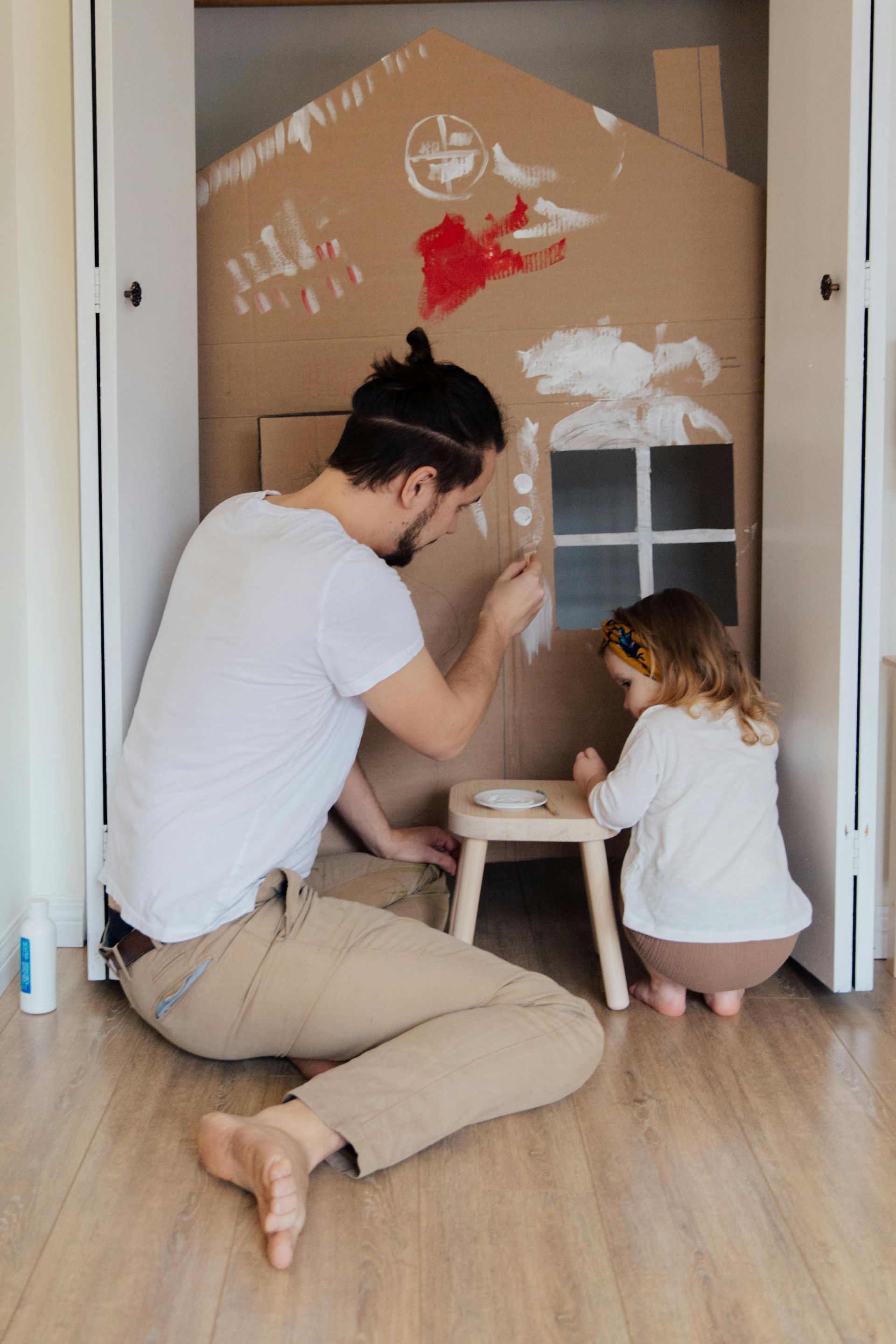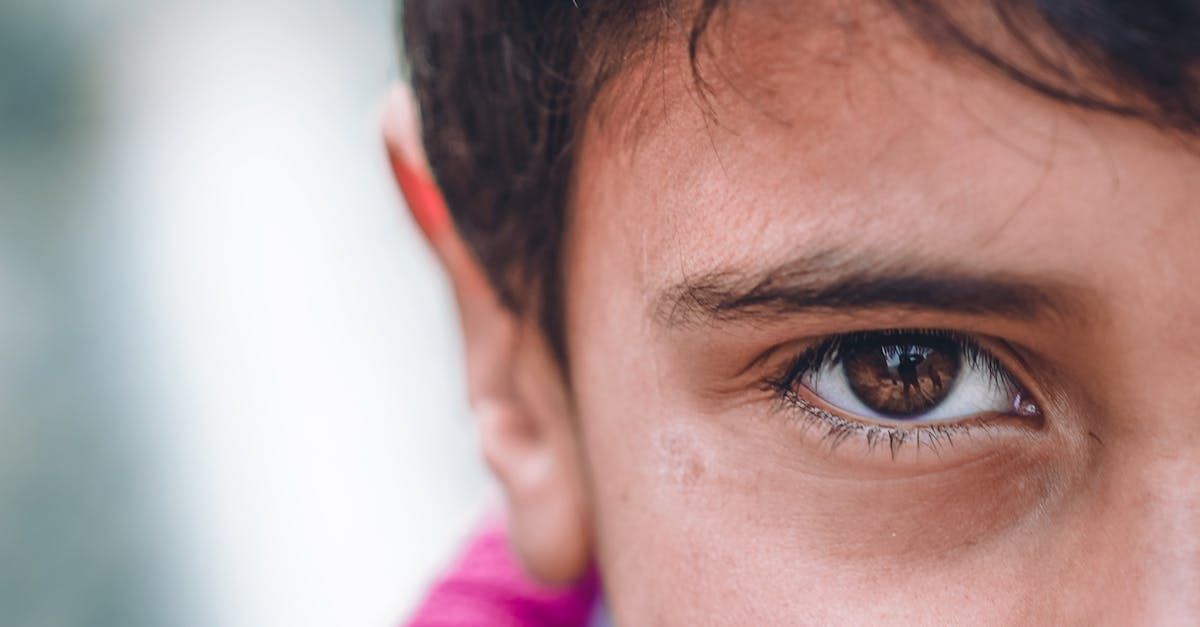Positive Discipline for Highly Sensitive Kids
Ceara Deno, MD • December 30, 2024
Schedule A Free Call
Positive Discipline for Highly Sensitive Kids

Parenting a highly sensitive child is both a rewarding and challenging experience.
These children feel deeply, process the world intensely, and can sometimes struggle with big emotions and which can create challenging behavior.
When it comes to discipline, traditional approaches like timeouts or punishments often backfire, creating an angry, disconnected child who behaves worse.
Positive discipline offers an alternative—one rooted in compassion, understanding, and teaching rather than punishing.
Here are some practical strategies to help you guide your highly sensitive child with love and respect.
1. Focus on Connection Before Correction
Highly sensitive children respond best when they feel emotionally safe and understood. Before addressing a behavior, prioritize connection. Get down to their level, make eye contact, and acknowledge their feelings.
For example:
Instead of jumping straight to discipline, say, “I see you’re really upset right now. Let’s take a moment to calm down, and then we can figure out what happened together.”
This approach helps your child feel seen and supported, which makes them more open to learning.
2. Teach, Don’t Punish
Highly sensitive kids often internalize criticism deeply, so punishment can damage their self-esteem and create fear or shame. Instead, focus on teaching and problem-solving.
For example:
Instead of: “You spilled your drink again! Be more careful!”
Try: “Oops, the drink spilled. Let’s clean it up together. Next time, we can use two hands to hold the cup.”
This approach encourages responsibility without making your child feel bad about themselves.
3. Set Clear and Gentle Boundaries
Boundaries provide a sense of safety and structure for all kids, but highly sensitive children need them delivered with extra kindness. Be firm yet gentle when setting limits.
For example:
“We don’t hit. Instead, we can say, I want a turn.”
When your child knows what to expect, they’ll feel more secure and better able to regulate their emotions.
4. Offer Choices to Avoid Power Struggles
Highly sensitive children often feel overwhelmed by a lack of control. Offering choices helps them feel empowered while still respecting boundaries.
For instance:
“It’s time to get dressed. Would you like to wear your blue shirt or your red one?”
“We need to clean up. Do you want to start with the blocks or the books?”
By giving them a sense of control, you can prevent meltdowns and make transitions smoother.
5. Use Natural and Logical Consequences
Natural and logical consequences are powerful teaching tools, especially for highly sensitive children. These consequences help them connect their actions to outcomes in a gentle, non-punitive way.
For example:
If your child is hitting other children with a stick, and they are not able to play appropriately, and the parent would need to take it away.
If they are trying to run away in public, the parent would need to either pick the child up and carry them, or hold their hand at all times.
Deliver consequences with empathy, not frustration, to help your child learn without feeling judged.
6. Praise Effort, Not Perfection
Highly sensitive children are often perfectionists who fear making mistakes. To build their confidence, focus on praising their effort and progress rather than the outcome.
For example:
“I saw how hard you worked on staying calm when your brother took your toy. I was so proud of you.”
Celebrating their efforts helps them feel proud of themselves and encourages them to keep trying, even when things are difficult.
Final Thoughts
Positive discipline isn’t about controlling your child’s behavior—it’s about teaching them the skills they need to manage their emotions, make good decisions, and grow into confident, compassionate individuals.
By focusing on connection, empathy, and problem-solving, you can guide your highly sensitive child in a way that strengthens your bond and builds their emotional resilience.
Remember, no one gets it perfect every time (and that’s okay!). Parenting is a journey, and every step you take toward gentle discipline is a step toward a stronger, more connected relationship with your child.
Ready for support using positive discipline in your home? Schedule a free call with me today.

I f you are the parent of a highly sensitive or strong-willed kid, stuck in constant power struggles, meltdowns, or angry outbursts, I’d like to share something with you. This is my method how I transform families. I’d like to share exactly how I take families from constant power struggles and meltdowns, to peace, harmony and connection . In only 12 weeks. Working one-on-one with parents. Via weekly Zoom calls. Here is What I Do: Step #1 : We transform your listening, so your child learns how to listen more respectfully to you, too. Step #2 : We strengthen self-empathy & self-compassion, so you feel connected, confident, and joyful as a parent. Step #3 : We stop patterns leading to big explosions and dysregulation. This means your child has fewer meltdowns, and you can actually enjoy your child, and stop walking on eggshells. Step #4 : We teach you how to set boundaries peacefully, so your child behaves better, listens more, and argues less. Step #5 : We stop sibling fighting, so your children get along better, and you don’t need to constantly referee fights. Step #6 : We focus on communicating differently, so your kid is more open to feedback and correction, and less likely to shut down, lash out, or become defensive. Step #7 : We learn how sensory challenges and your child’s high sensitivity might be creating challenging behaviors--so we can make life easier for you both. Step #8 : We get you and your partner on the same page, so you can stop disagreeing about parenting and start supporting one another. Step #9 : We celebrate your child’s unique personality, so you can enjoy your child, and stop feeling stressed, anxious or fearful about their future. Step #10 : We focus on your needs as a parent, so you feel less stressed, more calm, and joyful. So then what? What happens next? How will you feel? First, you will feel calmer. More confident. You’ll enjoy your child more. You’ll see your child in a more positive, hopeful way. You’ll connect better. Your child will listen more. Behave better. Have fewer meltdowns or big emotional explosions. You’ll notice your child using words to express their emotions and needs in healthier ways. You and your child will both feel less reactive, less bothered by little issues, and more able to find joy and connection. If you have a partner, the two of you will feel more like a supportive parenting team, and less likely to feel criticized, blamed, or judged for your parenting. You’ll have a shared vision and goal in parenting, and understand how to support each other better. You’ll feel more confident setting peaceful limits, and your children will be better able to hear you say no and tolerate the feelings that come with that. You will be able to go places that you might not have taken your child in the past, for fear of what might happen. If you have multiple children, they will fight less, get along better, and learn how to handle conflict between themselves more. If you are highly sensitive, you will better understand how to support your own needs as a parent, so you are less likely to feel overwhelmed and overstimulated, and more likely to feel energized and at peace. If your child is highly sensitive, you’ll better understand how to create a life that supports your child’s unique needs, and know how to make life function better for everyone. ******* If you are ready for support with your highly sensitive or strong-willed child’s big emotions or power struggles, you don’t have to do this alone. Let’s chat, and I can share more about how I can help create harmony. Schedule a free call with me today.

Many common challenges parents face with children misbehaving or being oppositional are actually signs of hidden sensory issues. This includes challenges like meltdowns, picky eating, hyperactivity, and resistance to hygiene—these can all be signs of hidden sensory issues. Discover practical ways parents can support their child’s sensory needs with empathy and simple accommodations.

These are the parenting ideas that help me to show up when life is messy. I call them my parenting mantras. How did I come up with these?
They arise from my experience as a mom for 16 years; my experience helping parents create peace and connection as a parent coach for 8 years; and my experience helping parents of NICU babies handle new parenthood and a child’s health crisis as a pediatrician in the NICU for 20 years.
These mantras that have helped me through my own struggles, and I think they can help you as you navigate parenting struggles, and seek to create a more peaceful, connected home as well.

Sometimes in our most stressful parenting moments, we can feel like we are not on the same page with our partner, or even that we are on opposing teams. This can happen because we have different parenting styles which can become more accentuated when a child is highly sensitive, or has big emotional reactions. Sometimes what appears to be a parenting challenge is actually a relationship challenge instead. Here are some common dynamics I see that are actually relationship challenges disguised as a parenting challenge.

Does your strong-willed or highly sensitive child meltdown with anything unexpected, refuse to get dressed, or lash out when you say “no”? Despite what it seems, they’re not trying to give you a hard time. They’re just HAVING a hard time. Many highly sensitive children struggle with their behavior in ways that looks like defiance and resistance, but it’s actually fear, anxiety and emotional overwhelm. By understanding this, we can find better solutions that help our kids to cooperate and have better behavior.

You make a small request of your strong-willed or highly sensitive child, and you get defiance, arguments, and power struggles. What’s going on? It’s NOT what you think. Many kids who look defiant are actually kids struggling to transitions to a new activity. Transitions are challenging for everyone, but for some children, because of their brain wiring, transitions are more challenging, creating major power struggles. Here’s what cures defiance.

For highly sensitive children especially, punishments often backfire, making behavior and your relationship worse than ever. How can we discipline highly sensitive children in effective ways that are based on trust, learning, and maintaining a close, connected relationship with their parents? We want to avoid punishments, and instead set boundaries with empathy and kindness, practice collaborative problem-solving, and do emotion coaching.

Do you have an argumentative or defiant kid? Many of the families I coach do.
If you have an argumentative child who needs to be in control, who is resistant and defiant with even small requests, who refuses to go outside his comfort zone, or who struggles with disappointment or embarrassment, this explains why your child is so challenging, and how to help them be more flexible and cooperative.


